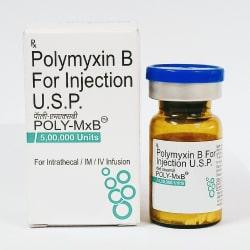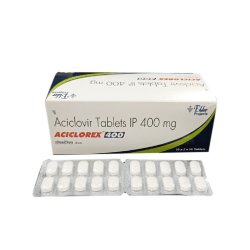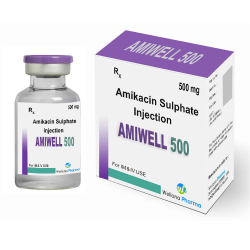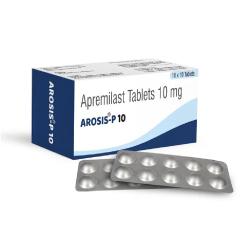Description
Patients with the following infections, when brought on by susceptible strains of the specified aerobic gram-negative bacteria, can be treated with Polymyxin- B injection:
- Urinary tract infections: Pseudomonas aeruginosa and Escherichia coli are the culprits.
- Pseudomonas aeruginosa, Enterobacter aerogenes (previously known as Aerobacter), and Klebsiella pneumonia are the three main
- Causes of bloodstream infections.
- Meningeal infections: Pseudomonas aeruginosa is the culprit.
- Pseudomonas aeruginosa is the cause of eye infections in the cornea and subconjunctival.
Dosage and Side Effects of Polymyxin- B injection
Only hospitalized patients may get the required dosage of Polymyxin B Injection intravenously, intramuscularly, or intrathecally, under the continual observation of a medical practitioner. The daily dosage of polymyxin B shouldn’t be more than 200 mg or 2.5 mg/kg.
The negative effects of polymyxin B that are most frequently reported are urticaria, neurotoxicity, discomfort at the injection site, and electrolyte imbalance.
Warning and Precautions of Polymyxin-B injection
- Therapy involving Polymyxin B 500,000 IU is not recommended for individuals with prior hypersensitivity reactions to it.
- Polymyxin B sulfate Injection, if used intravenously, intramuscularly, or intrathecally, should be reserved for hospitalized patients under close monitoring for kidney function and neurological symptoms.
- It should only be used to treat or prevent infections caused by susceptible bacteria to prevent drug-resistant bacterial development and maintain the effectiveness of the medication.
- Patients with myasthenia gravis should avoid using Polymyxin-B Injection.
- Regular assessment of renal function is essential before and during treatment due to the nephrotoxic effects of Polymyxin-B Injection.
- Extreme caution is advised when using Polymyxin-B sulfate injection in patients with porphyria.
- Use during pregnancy is restricted and should be considered only if the benefits to the mother outweigh potential risks to the fetus.






